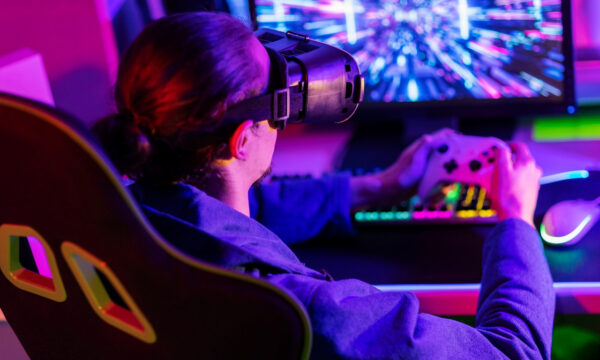Video games: Why they might be doing players good

Today, a lot of people (children and adults alike) love playing video games, but they still have a bad reputation. Often, they’re associated with extreme anti-social behaviour, addiction and extreme violence.
But that’s not always the case – video games can sometimes have positive effects. Their potential for educational benefit is clear, and they can teach critical-thinking skills that may come in handy in the future. Further positive results of video games can range from improving body control to the development of neuronal movement and more.
Memory
The truth is not all video games can improve memory. However, research shows that complex 3D games can help players to take advantage of recognition skills with memory, in the end improving their memory significantly.
Complex 3D games force players to picture a place as if it was real. As a result, the part of the brain responsible for memory – the hippocampus – gets activated and reacts with improved performance.
Dopamine release
Dopamine is also known as the reward hormone and is vital for learning and concentration. It’s the same hormone that gets released when individuals take recreational drugs.
When concentrating on playing video games, the brain releases neurotransmitters, including dopamine. Dopamine can strengthen neural circuits, improving cognitive performance.
But it’s important to remember that too much of anything is bad. Those who play video games for an extended period can develop addictions – they’ll know it when they can’t stop playing Warcraft but they have an assignment to complete or other tasks to do. If this is the case, it’s wise to place the gaming pads down and head to another room.
Slowing ageing
Everyone ages at some point. While ageing has its advantages, it also comes with a series of complications, such as vision problems and reduced mobility.
With exercises, seniors can feel healthier and younger, and some video games can help with this. There are also many options to exercise the brain, keeping it in good shape, creating new thought pathways, boosting memory and ensuring the mind stays sharp.
Social skills
Today there are more social video games than ever before, so the stereotype of lonely, isolated gamers is a thing of the past. Over 70% of players game in a social context, either with friends online or in the same gaming space.
According to research, playing social-based video games makes players more cooperative. Gamers can carry that same spirit of working together or cooperation to the real world.
Problem solving and logic
Kids who play mobile video games like Angry Birds and The Incredible Machines can gain problem-solving skills and logic, since they have to solve puzzles and other problems within a short period in order to progress.
Resource management, planning and logistics
In some video games, players must learn how to utilise their limited resources, just like in real life. Strategic games, such as Railroad Tycoon, Age of Empires, and SimCity imbue players with resource management skills.
Also, most SimCity creators, Maxis, and the trade association of urban planners in America (APA) urban planners claim SimCity influenced the decision of most games to pursue a career in urban planning and architecture.
Helping with dyslexia
Kids with learning difficulties caused by neurodevelopment disorder can benefit from playing action video games.
In a study, scientists took a group of kids with dyslexia and gave them video game therapy to see what effect it would have on their reading capability. The scientists discovered the children displayed faster reading ability after playing the games.
Besides that, video games enhanced the attention skills of the kids.
Improving eyesight
Most parents think their children will go blind looking at a screen all day playing video games, but the truth is they might actually improve their vision.
Playing action video games, such as Unreal Tournament 2004 and Call of Duty, can have a positive effect on the eyes: they exercise the contrast sensitivity function. This function allows for differentiation between changes in shades of grey against a coloured backdrop, which comes in handy, especially when driving at night.
Conclusion
So, the answer to “Is gaming bad for you” is “yes and no”. Not all gamers become violent or display anti-social behaviours, and not all players become addicted to video games.
Keep in mind video games provide players with a way to design and visit worlds that are not possible in reality. It’s a great activity to unwind and to connect with individuals across the world. Although video games can undoubtedly have negative effects, they also come with a lot of benefits and instil skills that can be used in the future.
The editorial unit























Facebook
Twitter
Instagram
YouTube
RSS